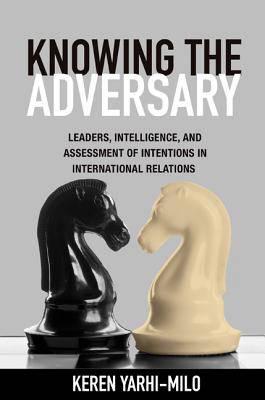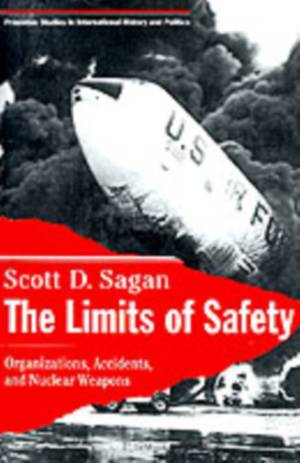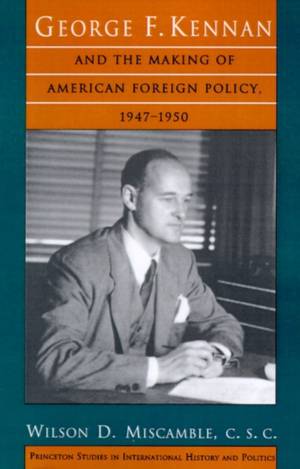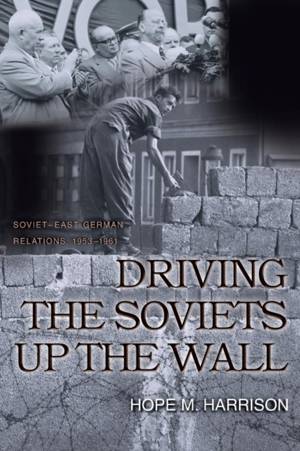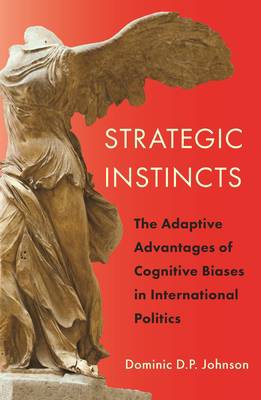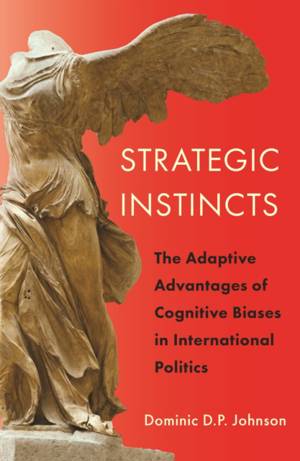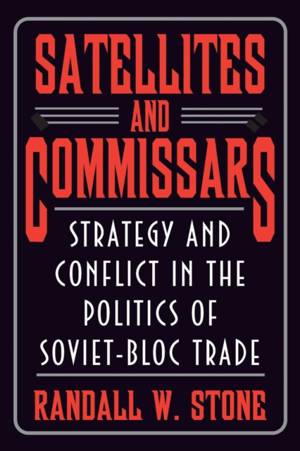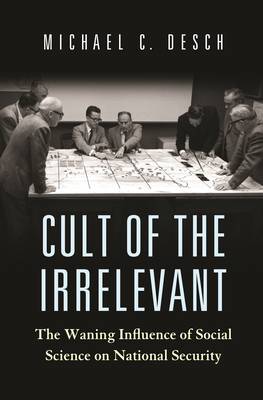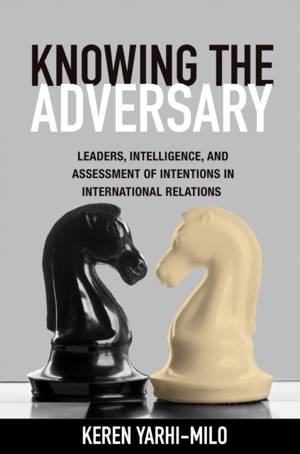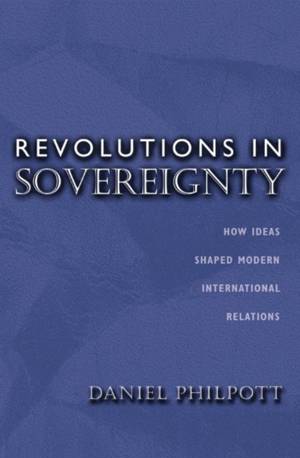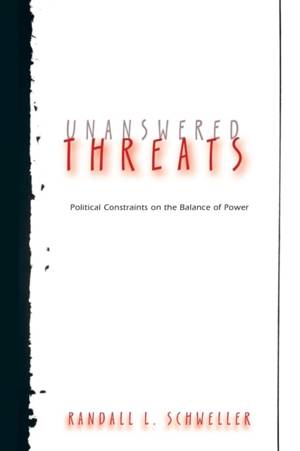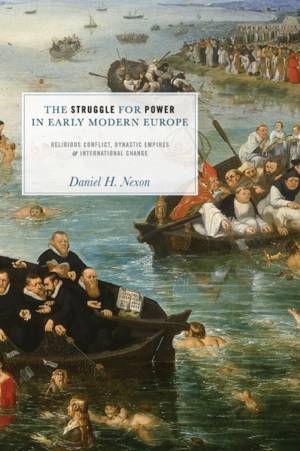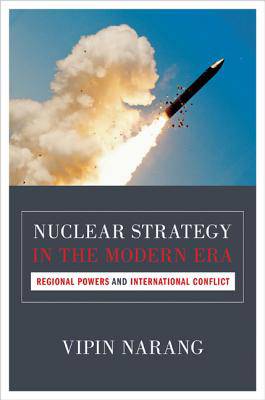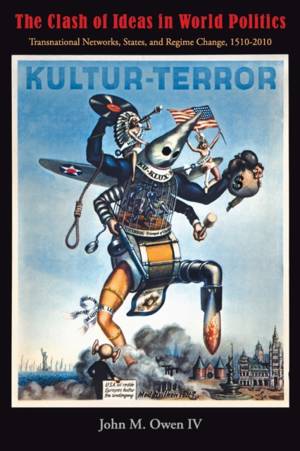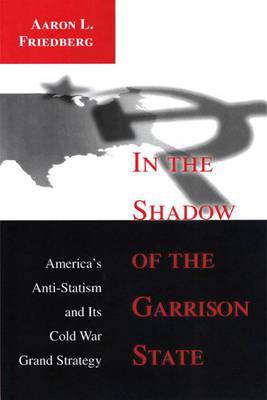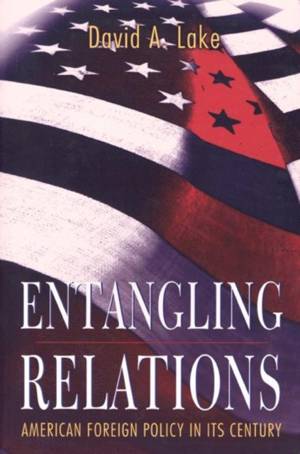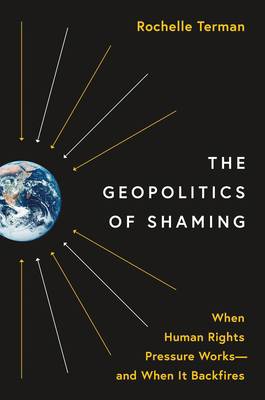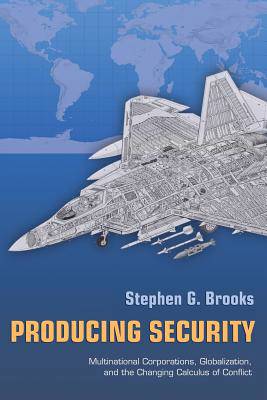
- Afhalen na 1 uur in een winkel met voorraad
- Gratis thuislevering in België vanaf € 30
- Ruim aanbod met 7 miljoen producten
- Afhalen na 1 uur in een winkel met voorraad
- Gratis thuislevering in België vanaf € 30
- Ruim aanbod met 7 miljoen producten
Zoeken
Reeksen: boeken uit de reeks Princeton Studies in International History and Politics
-
Knowing the Adversary
Keren Yarhi-Milo
- Hardcover | Engels | Princeton Studies in International History and Politics | nr. 146
- States are more likely to engage in risky and destabilizing actions such as military buildups and preemptive strikes if they believe their adversaries... Lees meer
€ 185,45Levering 2 à 3 weken€ 185,45Levering 2 à 3 weken -
The Limits of Safety
Scott Douglas Sagan
- Paperback | Engels | Princeton Studies in International History and Politics | nr. 53
- Environmental tragedies such as Chernobyl and the Exxon Valdez remind us that catastrophic accidents are always possible in a world full of hazardous ... Lees meer
€ 88,95Levering 2 à 3 weken€ 88,95Levering 2 à 3 weken -
George F. Kennan and the Making of American Foreign Policy, 1947-1950
Wilson D Miscamble C S C
- Paperback | Engels | Princeton Studies in International History and Politics | nr. 43
- When George C. Marshall became Secretary of State in January of 1947, he faced not only a staggering array of serious foreign policy questions but als... Lees meer
€ 133,95Levering 2 à 3 weken€ 133,95Levering 2 à 3 weken -
Driving the Soviets Up the Wall
Hope M Harrison
- Paperback | Engels | Princeton Studies in International History and Politics | nr. 100
- The Berlin Wall was the symbol of the Cold War. For the first time, this path-breaking book tells the behind-the-scenes story of the communists' decis... Lees meer
€ 96,95Levering 2 à 3 weken€ 96,95Levering 2 à 3 weken -
Strategic Instincts
Dominic D P Johnson
- Hardcover | Engels | Princeton Studies in International History and Politics | nr. 171
- "A very timely book."--Anne-Marie Slaughter, CEO of New America How cognitive biases can guide good decision making in politics and international rela... Lees meer
€ 43,95Levering 1 à 2 weken€ 43,95Levering 1 à 2 weken -
Strategic Instincts
Dominic D P Johnson
- Paperback | Engels | Princeton Studies in International History and Politics | nr. 171
- "A very timely book."--Anne-Marie Slaughter, CEO of New America How cognitive biases can guide good decision making in politics and international rela... Lees meer
€ 38,95Levering 2 à 3 weken€ 38,95Levering 2 à 3 weken -
Satellites and Commissars
Randall W Stone
- Paperback | Engels | Princeton Studies in International History and Politics | nr. 95
- Why did the Soviet Union squander the political leverage afforded by its trade subsidy to Eastern Europe? Why did Soviet officials fail to bargain wit... Lees meer
€ 75,95Levering 2 à 3 weken€ 75,95Levering 2 à 3 weken -
Cult of the Irrelevant
Michael C Desch
- Hardcover | Engels | Princeton Studies in International History and Politics | nr. 160
- How professionalization and scholarly "rigor" made social scientists increasingly irrelevant to US national security policy To mobilize America's inte... Lees meer
€ 41,95Levering 1 à 2 weken€ 41,95Levering 1 à 2 weken -
Knowing the Adversary
Keren Yarhi-Milo
- Paperback | Engels | Princeton Studies in International History and Politics | nr. 146
- States are more likely to engage in risky and destabilizing actions such as military buildups and preemptive strikes if they believe their adversaries... Lees meer
€ 52,95Levering 2 à 3 weken€ 52,95Levering 2 à 3 weken -
Divided Armies
Jason Lyall
- Hardcover | Engels | Princeton Studies in International History and Politics | nr. 166
- How do armies fight and what makes them victorious on the modern battlefield? In Divided Armies , Jason Lyall challenges long-standing answers to this... Lees meer
€ 212,45Levering 2 à 3 weken€ 212,45Levering 2 à 3 weken -
Revolutions in Sovereignty
Daniel Philpott
- Paperback | Engels | Princeton Studies in International History and Politics | nr. 92
- How did the world come to be organized into sovereign states? Daniel Philpott argues that two historical revolutions in ideas are responsible. First, ... Lees meer
€ 96,95Levering 2 à 3 weken€ 96,95Levering 2 à 3 weken -
Unanswered Threats
Randall L Schweller
- Paperback | Engels | Princeton Studies in International History and Politics | nr. 110
- Why have states throughout history regularly underestimated dangers to their survival? Why have some states been able to mobilize their material resou... Lees meer
€ 67,95Levering 2 à 3 weken€ 67,95Levering 2 à 3 weken -
The Struggle for Power in Early Modern Europe
Daniel H Nexon
- Paperback | Engels | Princeton Studies in International History and Politics | nr. 116
- Scholars have long argued over whether the 1648 Peace of Westphalia, which ended more than a century of religious conflict arising from the Protestant... Lees meer
€ 88,95Levering 2 à 3 weken€ 88,95Levering 2 à 3 weken -
The Sino-Soviet Split
Lorenz M Lüthi
- Paperback | Engels | Princeton Studies in International History and Politics | nr. 109
- A decade after the Soviet Union and the People's Republic of China established their formidable alliance in 1950, escalating public disagreements betw... Lees meer
€ 71,95Levering 2 à 3 weken€ 71,95Levering 2 à 3 weken -
Nuclear Strategy in the Modern Era
Vipin Narang
- Paperback | Engels | Princeton Studies in International History and Politics | nr. 143
- The world is in a second nuclear age in which regional powers play an increasingly prominent role. These states have small nuclear arsenals, often fac... Lees meer
€ 50,45Levering 2 à 3 weken€ 50,45Levering 2 à 3 weken -
The Politics of Secularism in International Relations
Elizabeth Shakman Hurd
- Paperback | Engels | Princeton Studies in International History and Politics | nr. 105
- Conflicts involving religion have returned to the forefront of international relations. And yet political scientists and policymakers have continued t... Lees meer
€ 67,95Levering 2 à 3 weken€ 67,95Levering 2 à 3 weken -
Secret Wars
Austin Carson
- Paperback | Engels | Princeton Studies in International History and Politics | nr. 157
- Secret Wars is the first book to systematically analyze the ways powerful states covertly participate in foreign wars, showing a recurring pattern of ... Lees meer
€ 46,95Levering 2 à 3 weken€ 46,95Levering 2 à 3 weken -
The Clash of Ideas in World Politics
John M Owen
- Paperback | Engels | Princeton Studies in International History and Politics | nr. 123
- Some blame the violence and unrest in the Muslim world on Islam itself, arguing that the religion and its history is inherently bloody. Others blame t... Lees meer
€ 83,95Levering 2 à 3 weken€ 83,95Levering 2 à 3 weken -
Legitimacy and Power Politics
Mlada Bukovansky
- Paperback | Engels | Princeton Studies in International History and Politics | nr. 120
- This book examines the causes and consequences of a major transformation in both domestic and international politics: the shift from dynastically legi... Lees meer
€ 70,95Levering 2 à 3 weken€ 70,95Levering 2 à 3 weken -
In the Shadow of the Garrison State
Aaron L Friedberg
- Paperback | Engels | Princeton Studies in International History and Politics
- War--or the threat of war--usually strengthens states as governments tax, draft soldiers, exert control over industrial production, and dampen interna... Lees meer
€ 88,95Levering 2 à 3 weken€ 88,95Levering 2 à 3 weken -
Entangling Relations
David A Lake
- Paperback | Engels | Princeton Studies in International History and Politics | nr. 80
- Throughout what publisher Henry Luce dubbed the "American century," the United States has wrestled with two central questions. Should it pursue its se... Lees meer
€ 85,45Levering 2 à 3 weken€ 85,45Levering 2 à 3 weken -
The Geopolitics of Shaming
Rochelle Terman
- Paperback | Engels | Princeton Studies in International History and Politics | nr. 201
- A bold new perspective on the strategic logic of international human rights enforcement When a government violates the rights of its citizens, the int... Lees meer
€ 40,95Levering 2 à 3 weken€ 40,95Levering 2 à 3 weken -
Producing Security
Stephen G Brooks
- Paperback | Engels | Princeton Studies in International History and Politics | nr. 102
- Scholars and statesmen have debated the influence of international commerce on war and peace for thousands of years. Over the centuries, analysts have... Lees meer
€ 70,95Levering 2 à 3 weken€ 70,95Levering 2 à 3 weken -
Appeasing Bankers
Jonathan Kirshner
- Paperback | Engels | Princeton Studies in International History and Politics | nr. 173
- In Appeasing Bankers , Jonathan Kirshner shows that bankers dread war--an aversion rooted in pragmatism, not idealism. "Sound money, not war" is hardl... Lees meer
€ 70,95Levering 2 à 3 weken€ 70,95Levering 2 à 3 weken









